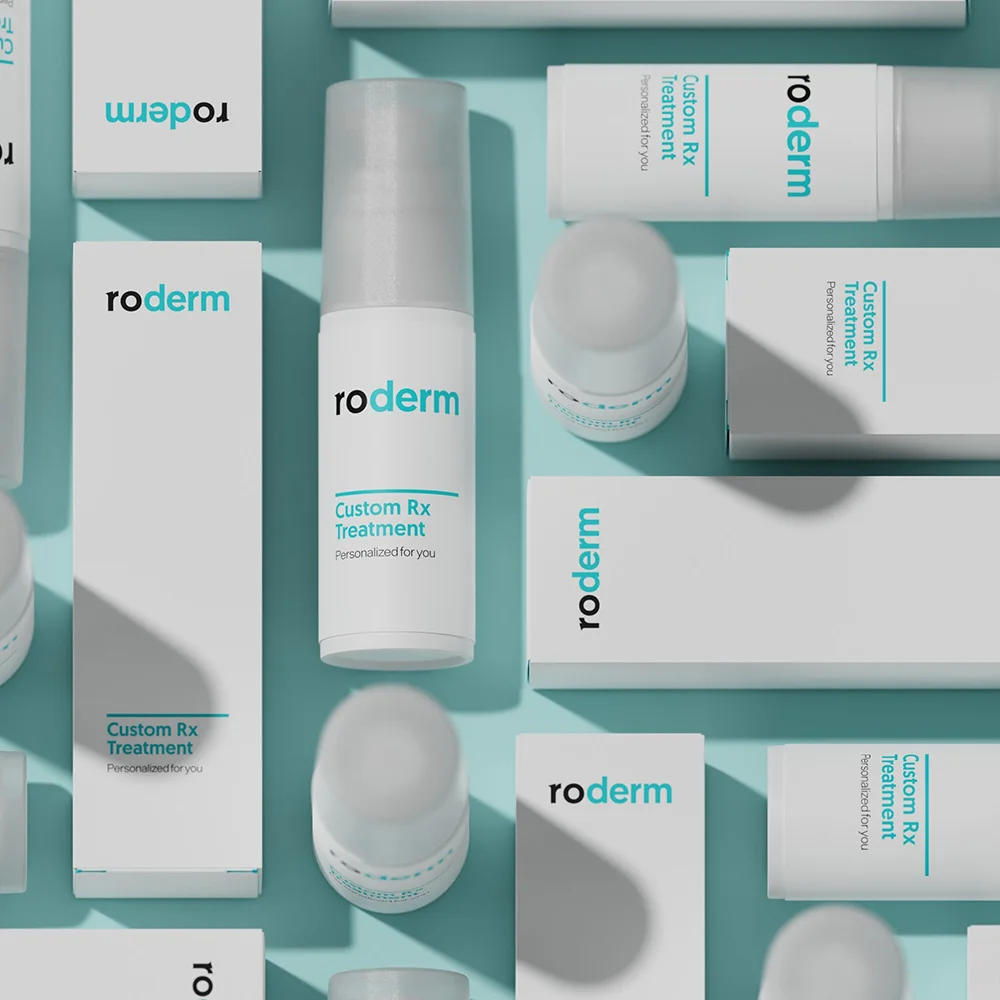Here's what we'll cover
Here's what we'll cover
Here's what we'll cover
You might be overwhelmed by the amount of information that pops up after you type in “essential oils” into the Google search box.
Some of these websites are promotional, while others make claims about how their product can help you lead a healthier life. These advertisements might make essential oils sound appealing. Still, none are approved by the FDA to treat or prevent the symptoms of eczema. For good reason, too—there is not enough evidence that they actually work.
What are essential oils?
The use of oils in medicine dates back to the earliest recorded civilizations. Olive oil, for example, was used by ancient Egyptians to treat many conditions. People of the time also applied it to the skin to reduce body odor (Karagounis, 2018).
Essential oils are made of a mixture distilled from specific plants. Tea tree oil comes from the steam distillation of the leaves and branches of the M. alternifolia tree. It contains almost 100 different chemical compounds (Carson, 2006). In fact, all essential oils are a combination of different compounds, and the concentration listed on the label is not something approved or verified by the FDA.
In recent years, there has been growing interest in finding “natural” alternatives to treat the symptoms of eczema and other skin conditions. According to a study published in 2014, about 13% of patients with chronic skin conditions try alternative therapies for their symptoms (Sivamani, 2014).
A few examples of the essential oils used in skin products include:
Jojoba Oil
Tea Tree Oil
Peppermint Oil
Coconut Oil
Calendula Oil
While essential oils might seem like a natural and healthy option, there is not enough data to support using them for eczema. And they even come with a few risks.
Are there risks when using essential oils?
Essential oils do come with some possible risks.
Applying them directly to the skin can cause an itchy allergic reaction called dermatitis. They can also act as an irritant to sensitive areas of the body, like in the nostrils and on the genitals (Hammer, 2006). Essential oils like tea tree oil and peppermint oil are available commercially in concentrated forms. They should be diluted in a carrier oil before use. And while some of these oils are used in shampoos and lotions, they may not help with your eczema symptoms, which we’ll discuss below.
If you’re planning to try using an essential oil, talk to your healthcare provider or dermatologist before doing so. Applying the diluted oil on a small patch of skin can help determine if it will cause an allergy. Look out for signs of redness or burning after completing the skin patch test.
Essential oils should never be swallowed by mouth as they can be very poisonous and have led to several fatalities when ingested (Hammer, 2006).
Are essential oils helpful in treating eczema?
Eczema is an umbrella term for a family of skin conditions that cause inflammation. More commonly known as atopic dermatitis, this condition can be lifelong, and there is no known cure. Fortunately, there are some over-the-counter and prescription options available for the treatment of eczema.
Healthcare providers make decisions about the medicines you take based on something called a clinical trial. For a medication to be approved by the FDA, these trials must be completed with many patients (often thousands) who are closely monitored for benefits and side effects. The gold standard for a clinical trial is known as a randomized controlled trial or RCT. Unfortunately, there are no large-scale RCTs for essential oils in eczema. But let’s briefly discuss the studies that are out there.
A trial published in 2014 in the International Journal of Dermatology studied the effects of coconut oil in kids with mild to moderate atopic dermatitis. While this study only had 117 participants, those participants reported better symptom relief from coconut oil over mineral oil (Evangelista, 2014). Scientists have shown that coconut oil may have anti-inflammatory properties and may even enhance the skin’s outer barrier (Kim, 2017).
A team of doctors in the Philippines conducted a trial using coconut oil in 52 adults with atopic dermatitis. Patients rubbed the oil on the affected areas of skin twice a day for four weeks. Those who used coconut oil had a more significant improvement in symptoms than those who applied olive oil (Verallo-Rowell, 2008).
Another study demonstrated that tea tree oil can reduce itching caused by allergic contact dermatitis (Wallengren, 2010). Although it is unclear how essential oils help in skincare, scientists have demonstrated in a lab that some of them may protect against certain bacteria and fungi (Man, 2019).
Treating your eczema
Essential oils (such as coconut oil, tea tree oil, and others) have demonstrated some benefit in small trials, but are not approved or recommended in patients suffering from eczema. Although researchers have reported that some essential oils may have anti-inflammatory and antifungal effects, more data is needed in larger-scale RCTs for providers to weigh these benefits against possible risks and make a confident recommendation.
If your eczema symptoms aren’t controlled and you are suffering from relapses, talk to your healthcare provider before considering essential oils. There are some safe and effective over-the-counter and prescription options available to help control your flare-ups.
DISCLAIMER
If you have any medical questions or concerns, please talk to your healthcare provider. The articles on Health Guide are underpinned by peer-reviewed research and information drawn from medical societies and governmental agencies. However, they are not a substitute for professional medical advice, diagnosis, or treatment.
References
Carson, C. F., Hammer, K. A., & Riley, T. V. (2006). Melaleuca alternifolia (Tea Tree) oil: a review of antimicrobial and other medicinal properties. Clinical microbiology reviews, 19 (1), 50–62. doi: 10.1128/CMR.19.1.50-62.2006. Retrieved from https://pubmed.ncbi.nlm.nih.gov/16418522
de Groot, A. C., & Schmidt, E. (2016). Essential Oils, Part I: Introduction. Dermatitis : contact, atopic, occupational, drug, 27 (2), 39–42. doi: 10.1097/DER.0000000000000197. Retrieved from https://pubmed.ncbi.nlm.nih.gov/27427818/
Evangelista, M. T., Abad-Casintahan, F., & Lopez-Villafuerte, L. (2014). The effect of topical virgin coconut oil on SCORAD index, transepidermal water loss, and skin capacitance in mild to moderate pediatric atopic dermatitis: a randomized, double-blind, clinical trial. International journal of dermatology, 53 (1), 100–108. doi: 10.1111/ijd.12339. Retrieved from https://pubmed.ncbi.nlm.nih.gov/24320105/
Hammer, K. A., Carson, C. F., Riley, T. V., & Nielsen, J. B. (2006, May). A review of the toxicity of Melaleuca alternifolia (tea tree) oil. Food Chem Toxicol, 44 (5), 616-625. doi: 10.1016/j.fct.2005.09.001. Retrieved from https://pubmed.ncbi.nlm.nih.gov/16243420/
Karagounis, T. K., Gittler, J. K., Rotemberg, V., & Morel, K. D.. (2019). Use of “natural” oils for moisturization: Review of olive, coconut, and sunflower seed oil. Pediatric Dermatology, 36 (1), 9–15. doi: 10.1111/pde.13621. Retrieved from https://pubmed.ncbi.nlm.nih.gov/30152555/
Kim, S., Jang, J. E., Kim, J., Lee, Y. I., Lee, D. W., Song, S. Y., et al. (2017). Enhanced barrier functions and anti-inflammatory effect of cultured coconut extract on human skin. Food and chemical toxicology : an international journal published for the British Industrial Biological Research Association, 106 (Pt A), 367–375. doi: 10.1016/j.fct.2017.05.060. Retrieved from https://pubmed.ncbi.nlm.nih.gov/28564614/
Man, A., Santacroce, L., Jacob, R., Mare, A., & Man, L. (2019). Antimicrobial Activity of Six Essential Oils Against a Group of Human Pathogens: A Comparative Study. Pathogens, 8 (1), 15. doi: 10.3390/pathogens8010015. Retrieved from https://pubmed.ncbi.nlm.nih.gov/30696051/
Sivamani, R. K., Morley, J. E., Rehal, B., & Armstrong, A. W. (2014). Comparative Prevalence of Complementary and Alternative Medicine Use Among Outpatients in Dermatology and Primary Care Clinics. JAMA Dermatology, 150 (12), 1363-1365. doi: 10.1001/jamadermatol.2014.2274. Retrieved from https://pubmed.ncbi.nlm.nih.gov/25251705/
Verallo-Rowell, V. M., Dillague, K. M., & Syah-Tjundawan, B. S. (2008). Novel antibacterial and emollient effects of coconut and virgin olive oils in adult atopic dermatitis. Dermatitis : contact, atopic, occupational, drug, 19 (6), 308–315. Retrieved from https://pubmed.ncbi.nlm.nih.gov/19134433/
Wallengren, J. (2011, 2011/07/01). Tea tree oil attenuates experimental contact dermatitis. Archives of Dermatological Research, 303 (5), 333-338. doi: 10.1007/s00403-010-1083-y. Retrieved from https://pubmed.ncbi.nlm.nih.gov/20865268/








